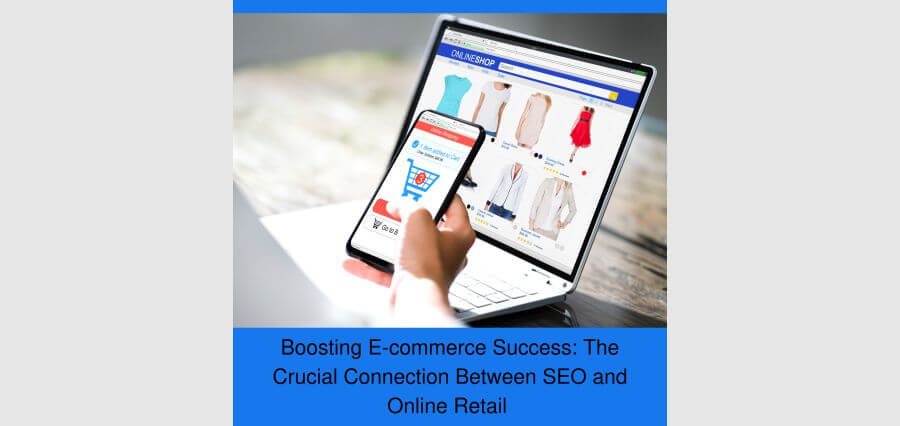In the changing realm of e-commerce, staying ahead of the competition is no task. With countless online stores vying for consumer attention, it becomes crucial to employ tactics that drive traffic, boost sales, and secure a position in search engine results. Search Engine Optimization (SEO) stands tall as one of the tools in your e-commerce arsenal. In this blog post, we will delve into the relationship between e-commerce and SEO, highlighting how implementing SEO practices can significantly impact your success in online retail.
- Understanding the E-commerce Landscape
Before diving into the world of SEO, let’s take a glimpse at today’s state of e-commerce. E-commerce has witnessed growth with greater acceleration caused by the global pandemic. Consumers are increasingly turning to online shopping, creating both opportunities and challenges for businesses operating in this space. To thrive amidst competition, having a well-structured SEO strategy becomes imperative.
- The Power of Keywords
Keywords serve as the bedrock of SEO practices. In the context of e-commerce, identifying keywords takes on importance.
Let’s dive into the process of conducting keyword research specifically designed for e-commerce websites, taking into account factors like product names, descriptions, and user intent. By utilizing tools such as Agency Dashboard, Google Keyword Planner, SEMrush, and Ahrefs, you can uncover insights about keywords that will enhance your e-commerce SEO.
- On-Page Optimization
The product pages on your e-commerce website serve as its core. We will discuss the significance of optimizing product titles, descriptions, and images to increase their visibility in search engine results. Discover how to create content that not only attracts search engines but also engages your audience by incorporating relevant keywords.
- SEO for E-commerce
E-commerce websites can be quite complex, with a wide range of products, categories, and filters. In this section, we will explore the aspects of SEO, such as optimizing site speed, ensuring mobile friendliness, and implementing data markup. These factors greatly influence how search engines rank your site and how users interact with it.
- Link-Building Strategies
Link building continues to be an element in SEO strategies and holds equal importance for e-commerce sites. Lets explore methods for obtaining high-quality backlinks from sources and utilizing user-generated content, reviews, and social proof to enhance your link profile.
- Content Blogging
Blogging isn’t just limited to websites; it serves as a tool for e-commerce SEO as well. Gain insights on crafting relevant and captivating blog content that attracts traffic, establishes your authority in your specific niche, and ultimately drives sales.
- User Experience
Search engines take user experience into account when ranking websites. We will delve into the optimization techniques that can improve your site’s navigation, loading speed, and mobile responsiveness – all of which contribute to SEO performance and enhanced user satisfaction.
- E-commerce SEO Tools and Analytics
Discover the SEO tools and analytics platforms that can streamline your e-commerce optimization endeavors. From Google Analytics to plugins designed for e-commerce websites, we will guide you through the resources that offer insights and data to inform your strategic decisions.
- Staying Updated with SEO Trends
The field of SEO is constantly evolving, with trends emerging regularly. Let’s delve into the significance of keeping up with SEO trends and algorithm updates to ensure that your e-commerce website stays competitive and maintains its visibility in search results.
- Evaluating Success and Return on Investment
Lastly, we will explore ways to assess the success of your e-commerce SEO efforts. We will discuss metrics like performance indicators (KPIs), tracking conversions, and calculating return on investment (ROI). This will help you gauge the impact of your SEO strategy on your line.
Conclusion
E-commerce and SEO go hand in hand, and understanding this connection is crucial for achieving success in online retail. By implementing the strategies and adhering to practices outlined in this article, you will be well prepared to navigate the e-commerce landscape, improve your search engine rankings, and ultimately generate more sales. Remember that SEO is a process; therefore, it is important to remain dedicated to refining your approach and adapting to industry changes in order to maintain an edge in the world of e-commerce.


